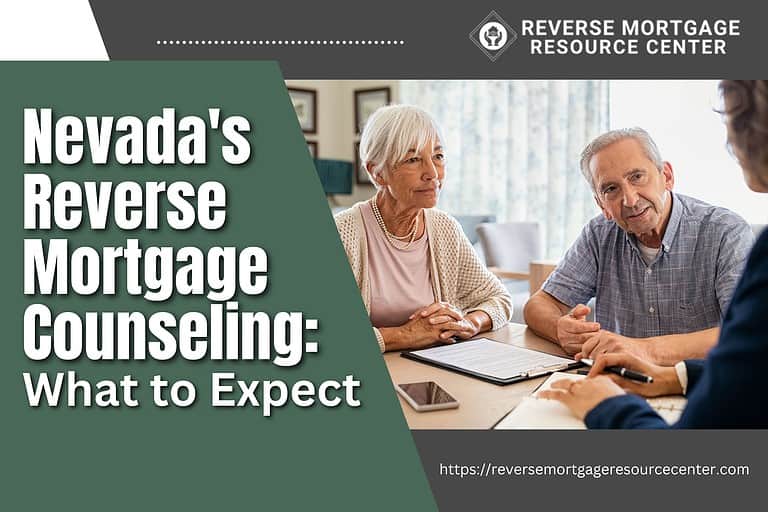Nevada’s Reverse Mortgage Landscape: Insights for Homeowners
As Silver State homeowners, Nevadans have unique opportunities and challenges when managing their houses and finances. The reverse mortgage is one financial option that has grown in favor among Nevada elders. This page seeks to provide a complete overview of Nevada’s reverse mortgage scenario, providing useful information for homeowners contemplating this option.
Understanding Reverse Mortgages
What is a Reverse Mortgage?
A reverse mortgage is a financial arrangement for homeowners aged 62 and up. A reverse mortgage, as opposed to a standard mortgage in which homeowners make monthly payments to the lender, allows homeowners to convert a portion of their home equity into income tax-free funds. Instead of monthly payments, the loan sum accumulates over time and is often repaid when the homeowner sells the home, moves out, or passes away.
Types of Reverse Mortgages
Homeowners in Nevada can pick from numerous types of reverse mortgages:
Home Equity Conversion Mortgage (HECM): The most prevalent type of reverse mortgage is the HECM, which is insured by the Federal Housing Administration (FHA). HECMs provide a variety of disbursement alternatives, such as a line of credit, monthly installments, or a one–time lump sum.
Proprietary Reverse Mortgages: Some private lenders provide proprietary reverse mortgages with loan limitations that may be larger than HECMs. These may be appropriate for homeowners with high-value properties.
Single-Purpose Reverse Mortgages: Local government or non-profit groups often provide these. They are intended for certain objectives, such as paying property taxes or repairing homes.
Nevada’s Unique Reverse Mortgage Landscape
Home Values in Nevada
The Nevada real estate market has seen its share of ups and downs. Home values have risen dramatically in recent years, making it an appealing market for reverse mortgages. However, the value of your property in your neighborhood might greatly impact the amount you can borrow through a reverse mortgage.
Eligibility Requirements
To be eligible for a reverse mortgage in Nevada, you must meet the following requirements:
- You must be at least 62 years old.
- Your home must be your primary residence.
- You should own your home outright or have a substantial amount of equity.
- You must participate in a mandatory counseling session to ensure you fully understand the implications of a reverse mortgage.
Local Lenders and Counseling Resources
Nevada has several options available to homeowners interested in reverse mortgages. Local lenders and mortgage brokers can offer customized advice and financing solutions for your specific circumstances. Furthermore, HUD-approved counseling agencies around the state provide free counseling to assist you in making informed selections.
Benefits of Reverse Mortgages in Nevada
Supplement Retirement Income
Many Nevada seniors suffer financial difficulties in retirement, ranging from higher healthcare bills to increased living expenses. A reverse mortgage can provide a consistent source of funds, allowing you to maintain your standard of living while covering important expenses. Knowing that you have a steady source of funds to support your retirement might bring peace of mind.
No Monthly Mortgage Payments
The lack of monthly mortgage payments is one of the most enticing characteristics of reverse mortgages. This tool can help homeowners on fixed incomes relieve financial stress. You can shift your finances to other critical costs or enjoy a more pleasant retirement without the burden of monthly mortgage payments.
Retain Homeownership
Contrary to popular belief, taking out a reverse mortgage does not imply that you will lose ownership of your property. You continue to be the homeowner and enjoy the perks of homeownership, such as property appreciation. This allows you to remain in the property you love while gaining access to the equity accumulated over time.
Flexible Disbursement Options
Nevada homeowners can receive their reverse mortgage funds in various ways, including a one-time lump sum, monthly installments, or a line of credit. This adaptability enables you to adjust the loan to your financial requirements. You can, for example, use a line of credit to cover unexpected needs or receive monthly disbursements to supplement your retirement income.
Considerations Before Getting a Reverse Mortgage
Interest Rates and Fees
It is critical to thoroughly investigate the interest rates and expenses related to reverse mortgages. Interest is charged on the loan balance, and costs vary amongst lenders. Comparing offers from various lenders is critical for obtaining the best conditions. Lower interest rates and appropriate fees can help you optimize your available finances while limiting the loan’s long-term expense.
The Effect on Heirs
While a reverse mortgage can give financial security during your lifetime, its impact on your heirs must be considered. After you pass away, they may have to return the loan sum or sell the house to cover the debt. Discussing your decision with your heirs and involving them can guarantee that everyone understands the implications and is ready for the future.
Mandatory Counseling
Before receiving a reverse mortgage, HUD requires homeowners to attend counseling. This counseling session will ensure you understand the loan’s terms and ramifications. Use this chance to ask questions and acquire a thorough knowledge of the commitment you’re making. The counseling session might provide useful information and assist you in making an informed decision.
Protecting Yourself: Avoiding Reverse Mortgage Scams
Unfortunately, reverse mortgages, like any financial instrument, can attract unscrupulous individuals and groups attempting to exploit vulnerable homeowners. Follow these precautions to stay safe:
Work with Reputable Lenders: Select a lender with a proven track record and favorable client feedback. Check their credentials and make certain they are officially licensed. You can avoid much fraud by researching and picking a reputable lender.
Beware of High-Pressure Sales Tactics: Be wary of anyone pushing you into a reverse mortgage without giving you enough time to consider it. Genuine lenders and advisers will understand your need to take time and make informed decisions.
Read the Fine Print: Carefully examine all documentation and contracts related to your reverse mortgage. Seek legal or financial assistance if something appears ambiguous or too good to be true. Understanding the loan’s terms and conditions is critical to making the best decision.
Consult a Trusted Advisor: Before making any decisions, talk with a trustworthy financial counselor, attorney, or family member who has your best interests in mind. Their advice and insight can assist you in navigating the complex world of reverse mortgages and avoiding any hazards.
REVERSE MORTGAGE RESOURCE CENTER ~LIVE LIFE ON YOUR TERMS~
Our Lending Team has been serving our clients since 2004. We are passionate about serving our clients with integrity to help them achieve their financial goals.







